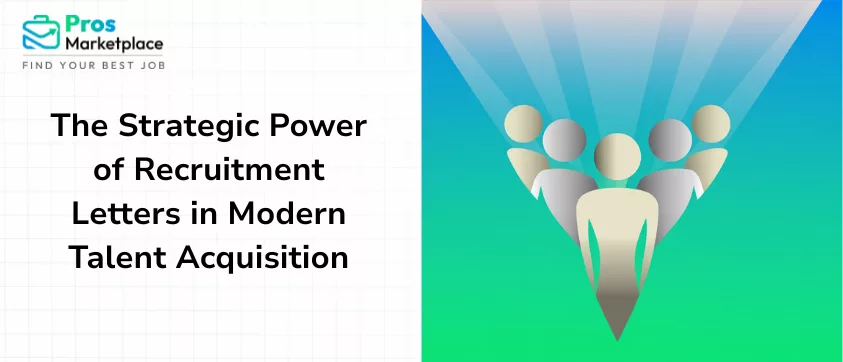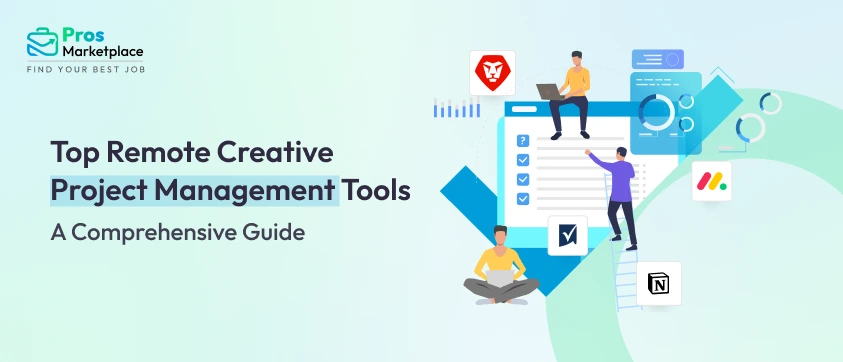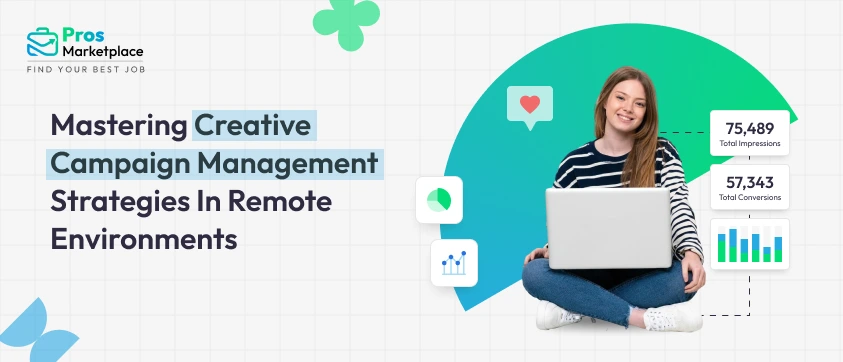A corporate recruiter is responsible for the entire hiring process, from finding potential candidates through various channels such as social media and resumes to interviewing and processing qualified applicants. These corporate recruiters specialize in a particular field (such as IT) and candidates from that field. Some recruiters attend job fairs or conferences to find potential employees
Effective employees have good verbal and written communication skills, the ability to make multiple decisions during hiring processes, and the capacity to make decisions based on personality.
What do Corporate Recruiter do?
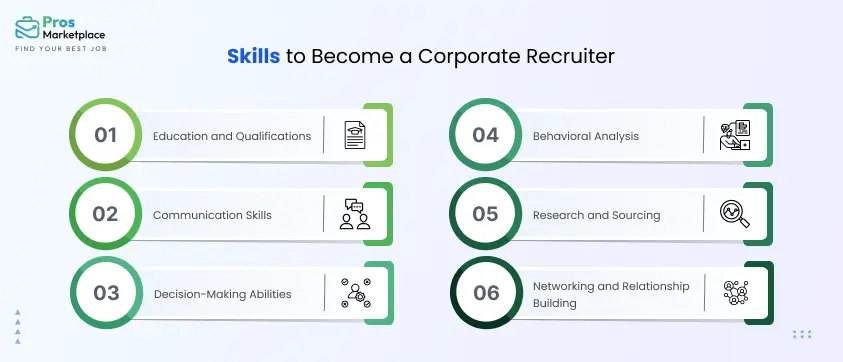
Staff recruitment is important in every organization and is responsible for recruiting talent. They are employed directly by the company and are responsible for finding, evaluating, ensuring equality, and recruiting potential candidates. Recruiting is a multifaceted activity that is often described as a process at different levels, each requiring specific tasks. This environment includes contacting selected candidates, discussing the job, and completing the offer.
However, it is the top of the funnel that requires the most attention and presents the widest range of challenges. They identify top talent to find pipelines, create presentations to enhance employer branding and cultivate relationships with diverse recruiters.
So do you want to be a corporate recruiter? Here’s what it takes:
Staff recruitment is important in every organization and is responsible for recruiting talent. They are employed directly by the company and are responsible for finding, evaluating, ensuring equality, and recruiting potential candidates. Recruiting is a multifaceted activity often described as a process at different levels, each requiring specific tasks. This environment includes contacting selected candidates, discussing the job, and completing the offer.
However, it is the top of the funnel that requires the most attention and presents the widest range of challenges. They identify top talent to find pipelines, create presentations to enhance employer branding and cultivate relationships with diverse recruiters.
So do you want to be a corporate recruiter? Here’s what it takes:
- Education: A college degree is usually a must, with business or HR being popular choices. Some recruiters even get extra certifications
- Communication: You have to be a clear communicator! You’ll explain jobs, interview candidates, and convince them why your company is awesome
- Decision Making: Picking the perfect person for a job? That’s you! You’ll weigh resumes, interview skills, and gut feelings to find the best fit
- Behavior Analysis: Can you tell if someone matches the company culture well? A keen eye for character is a recruiter’s talent
- Research: Digging into backgrounds and finding top talent online? You’ll be a pro at online research
- Networking: Building relationships with universities and professional groups is key to finding great candidates
- People Person: You’ll talk to people all day – interviewing, attending job fairs, and getting folks excited about new opportunities
These recruiters are often the first point of contact for potential employees. Their role extends beyond the initial interaction as they deliver the message and facilitate the onboarding process.
These are permanent positions within the company tied to the company’s long-term talent acquisition goals, rather than employees hired externally for specific jobs. This diversity makes them attractive to companies and encourages them to find the best talent. Help. These companies understand the value of investing in their workforce to secure exposure to top talent. The role of the recruiter is important; it requires a combination of strategic and operational skills.
Benefits of Hiring a Corporate Recruiter?
The success of any organization depends on hiring and retaining top talent. That is why recruiters are important. These professionals are dedicated to identifying and creating the best candidates for key positions in the company, ensuring the workforce remains strong, diverse, and cohesive, which is an organization’s goal.
Experience and insight into the recruitment process. More than just filling in for dissatisfied employees, it supports hiring through rigorous screening and evaluation processes, reducing the time to hire and improving overall employee quality. Their business acumen, combined with their ability to leverage technology and collaboration, allows them to address unreachable resources. Customers gain experience from first contact to inception.
Recruiters can enhance their company’s brand by developing relationships with potential employees and maintaining open communication about hiring. From driving cost savings to fostering a culture of innovation and growth, these professionals are critical to their organizations’ rapid and competitive success in the industry today.
Education: A bachelor’s degree in business administration or human resources is usually required. Some job seekers seek additional certifications to improve their skills. Communicate with candidates throughout the hiring process.
Communication Skills: Excellent communication skills to effectively advertise job openings, clearly explain job duties and expectations, and engage with candidates throughout the hiring process.
Decision-Making Abilities: Evaluating candidates through thoughtful consideration of various factors. Strong decision-making skills help you choose individuals who best fit the role and company culture.
Assessment Skills: Assessing candidates involves more than just reviewing resumes. Exceptional research skills are needed to thoroughly check backgrounds and verify qualifications. Knowing where qualified job seekers look for opportunities helps you target recruitment efforts effectively.
Networking Expertise: Building relationships with universities, professional groups, and industry contacts is essential. These connections provide valuable resources for finding top talent.
Interpersonal Skills: Excellent interpersonal skills are vital for evaluating candidates, building rapport, and generating interest in job opportunities within your organization.
What skills are required for the Career Development Program?
- Familiarity with applicant tracking systems and social media applications
- Outstanding skills in tracking metrics and interpreting data for recruitment campaigns
- Professional, good telephone and in-person manners, particularly the ability to communicate and build relationships.
- Work in a fast-paced environment and meet deadlines.
What do Corporate Recruiters look for?
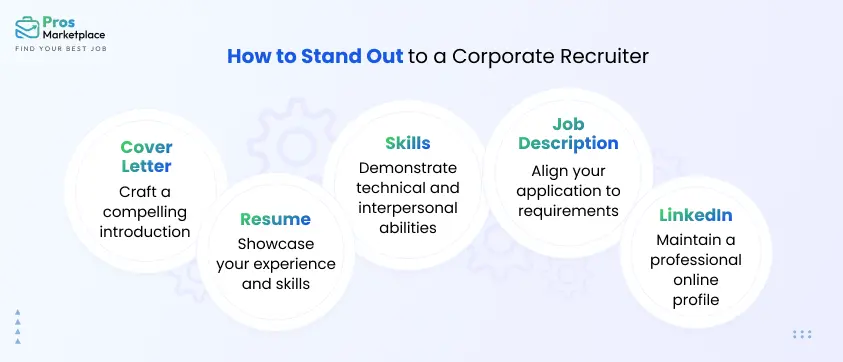
A Corporate recruiter is important for finding the right talent to move the organization forward. More than just matching candidates for open positions, these professionals are also aware of the features that make them a good fit for the job and the company culture.
Based on this, they use various recruitment strategies, using traditional channels and modern platforms, to attract diverse candidates.
Pay attention to the main structure. By understanding what recruiters are looking for, from the content of the cover letter to the depth of experience visible on the resume, we provide owners with five pieces of information and insights that create good business practices in today’s business world.
Cover letter
Your cover letter holds significant weight as it forms your initial impression. Corporate recruiters look for candidates who align closely with the job requirements, so it’s crucial to emphasize your skills and explain why you’re an ideal match. Keep your cover letter concise and professional, considering the volume of applications recruiters review. Tailor each letter to the specific role, demonstrating your understanding and genuine interest in the position.
Resume
Your resume serves as your professional narrative and must shine brightly. Recruiters often use applicant tracking systems (ATS) to scan resumes initially. Therefore, ensure your resume’s format and language effectively highlight how you meet the job’s criteria. Showcase your career progression and development in the field to underscore your suitability for the role.
Skills
Skills are paramount to the recruitment process. Recruiters seek evidence of both hard and soft skills. Highlight your hard skills on your resume to meet the minimum requirements. For soft skills, illustrate them through stories of accomplishments and examples. Did you lead a successful team project? Have you used feedback to drive improvements? These anecdotes bring your soft skills to life and demonstrate your potential contribution to the organization.
Job description
Align with the core requirements outlined in the job description. Recruiters act as matchmakers, seeking candidates whose experience and skills closely match the role’s essential criteria. Highlight how your years of experience have refined your skill set and prepared you for this opportunity. Additionally, recruiters may scout job boards for passive candidates with resumes that showcase specific skills.
Your LinkedIn presence is crucial. Corporate recruiters frequently use this platform to search for titles and skill sets that match their needs. They may also review your profile to verify your credentials and learn more about your background. So, ensure your LinkedIn profile is updated and communicates your unique value proposition.
So when applying for positions, remember that recruiters also evaluate your potential contribution to the organization. Highlight your diverse skills, experiences, and achievements to distinguish yourself from other candidates.
Conclusion
Recruitment is important for the development and future of a company. The role of the corporate recruiter is more than just filling a vacancy; they must have a deep understanding of the company’s needs, competitive advantage, effective evaluation, and negotiation.
Their success depends on establishing and maintaining good relationships within the company and with potential competitors. By promoting the right candidate, they can increase the reputation of their company and attract the attention of professionals. Change the candidate’s expectations.
Their skills, passion, and strategic vision are crucial to creating a strong, talented, and engaged workforce. As the business grows, the role of recruiters also becomes important, reflecting their importance in the changing world of procurement and management.




